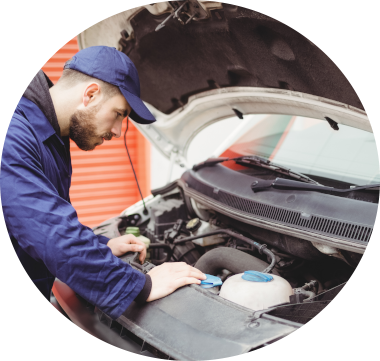All Categories
Featured

[/image]
Your car's brakes are one of the most important components in guaranteeing your safety and security and the safety of others when driving. Regular brake assessments are crucial to keeping ideal braking efficiency and staying clear of pricey fixings. Whether you're a seasoned vehicle proprietor or a brand-new chauffeur, recognizing brake evaluation guidelines can aid you remain positive about maintenance and guarantee your vehicle is constantly roadworthy.
- Why Brake Inspections Issue. The even more you drive, the extra friction your brake pads endure, at some point leading to reduced braking effectiveness. Without proper examination, it's challenging to assess when your brakes might be in demand of fixing.
A well-kept brake system makes certain fast, responsive stopping power, especially in emergencies. It additionally aids prolong the life of your lorry, as ignoring brake upkeep can lead to much more extreme, costly issues later on.
- Indications You Required a Brake Examination. While it's critical to have your brakes inspected periodically, specific signs may show that they need interest. Watch (and ear) out for these caution signals:
Squeaking or Grinding Noises: Uncommon audios, specifically a piercing screech or grinding noise, commonly suggest that your brake pads are worn down. Vibration or Pulsation: If you feel resonances or a pulsing feeling when pressing the brake pedal, maybe an indicator of warped blades or unequal brake pad wear. Decreased Brake Responsiveness: If your brakes feel much less receptive or you have to push the pedal harder to reduce, it might indicate air in the brake lines or low brake fluid. Drawing to One Side: If your vehicle pulls away when stopping, it might indicate irregular brake pad wear or a brake liquid leak. Dashboard Caution Lights: Some vehicles have brake-related warning lights that suggest issues like low brake fluid or used brake components. If you see any of these signs and symptoms, it's essential to have an expert mechanic do a brake evaluation asap.

- What Happens During a Brake Examination? During a brake assessment, a technician will certainly check several vital components of the stopping system to ensure everything is in working order. Below's what you can expect during the procedure:
Brake Pads and Shoes: The mechanic will certainly evaluate the thickness of the brake pads or shoes. If they're too slim, they'll need to be changed. Brake Rotors: Blades are the discs that the brake pads press versus to slow your cars and truck down. They'll be looked for any indicators of wear, scoring, or bending. Brake Fluid: Low or infected brake fluid can hinder braking performance. The service technician will certainly examine the fluid level and quality and top it up or flush it if needed. Brake Lines and Tubes: Brake lines carry liquid from the master cyndrical tube to the brakes. The auto mechanic will certainly check for any type of leakages, splits, or damage to make sure appropriate liquid flow. Brake Calipers and Wheel Cyndrical Tubes: Calipers and wheel cyndrical tubes press the brake pads against the rotors or drums. The specialist will certainly examine for wear, leakages, and appropriate procedure. 4. How Often Should You Have Your Brakes Evaluated? The regularity of brake inspections depends on factors like your driving practices, the sort of vehicle you drive, and the setting in which you drive. As a general rule, it's a good idea to have your brakes inspected every 12,000 miles or yearly. If you experience any of the warning signs discussed previously, it's vital to obtain your brakes examined right away.
For those that regularly drive in heavy web traffic, mountainous surface, or rough weather condition conditions, more constant evaluations may be essential.
- Importance of Timely Brake Fixes. When you find an issue with your brakes, it's crucial to resolve it right now. Postponing brake repair services can bring about more significant damages to your stopping system, causing higher repair service expenses. In extreme cases, neglecting brake issues can lead to finish brake failing, which is a serious safety threat.
By remaining on top of brake maintenance and addressing issues promptly, you guarantee that your brakes remain to execute as meant, keeping you and your passengers safe on the roadway.
Final Thought: Maintain Your Brakes in Leading Forming. Brake inspections are a basic yet essential part of vehicle maintenance. By understanding the value of routine inspections, understanding the indications of brake concerns, and remaining positive with repair services, you can ensure your car's stopping system continues to be in ideal condition.
Latest Posts
Uncover Auto Services & More: Full Auto Care Solutions from Montclare Auto Repair
Check Out Leading Auto Repair Care offered by Montclare Auto Repair – Quality Service Today
Unlock Your Financial Partner at WyHy – Key Advantages for Your Financial Success
More
Latest Posts
Uncover Auto Services & More: Full Auto Care Solutions from Montclare Auto Repair
Check Out Leading Auto Repair Care offered by Montclare Auto Repair – Quality Service Today
Unlock Your Financial Partner at WyHy – Key Advantages for Your Financial Success